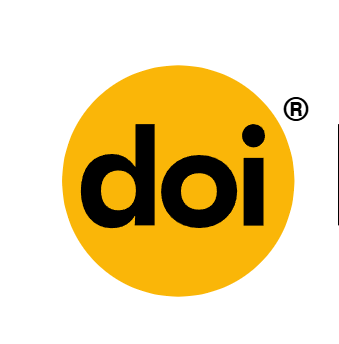Artificial Intelligence and the Integrity of the Electoral Process An Analytical Study
DOI:
https://doi.org/10.64184/ajlps.V2.I3.Y2025.P607-630.143Keywords:
elections, artificial, transformations, systems.Abstract
This research aims to address a technological aspect, namely artificial intelligence, which represents a troubling and astonishing shift in the world of elections and their means. We may be among the countries lagging behind in this field, but despite our modest capabilities, there has been a significant and clear impact through the use of this field called artificial intelligence, which has been harnessed to manipulate numbers, votes, and propaganda. This is what is evident in the folds of our research.
References
1. Russell, S., & Norvig. (2020). Artificial Intelligence: A Modern Approach (4th ed.). Pearson.
2. Floridi, L. (2023). Ethics of Artificial Intelligence. Oxford University Press.
3. O’Neil, C. (2016). Weapons of Math Destruction: How Big Data Increases Inequality and Threatens Democracy. Crown Publishing.
4. Zuboff, S. (2019). The Age of Surveillance Capitalism: The Fight for a Human Future at the New Frontier of Power؛ (2024). Surveillance Capitalism in the Age of AI Manipulation. PublicAffairs.
5. Eubanks, V. (2018). Automating Inequality: How High-Tech Tools Profile, Police, and Punish the Poor؛ (2024). Automating Democracy: The Hidden Costs of AI in Politics. The New Press.
6. Bodrunova, S. et al. (2021). Deepfakes and Synthetic Media in the Wild: Challenges and Opportunities؛ (2023). Deepfakes in Elections: A Global Threat. Springer/Palgrave Macmillan.
7. Gupta, R., & Kumar, A. (2021). AI in Electoral Systems: Case Studies from India. Springer.
8. Gupta, A. (2022). AI for Electoral Integrity: Case Studies from India. Springer.
9. Santos, R., & Oliveira, M. (2023). E-Voting and AI: The Brazilian Experience. MIT Press.
10. European Commission. (2023). Blockchain and AI in Electoral Processes: The Georgian Experiment؛ Digital Democracy in the EU: Lessons from Estonia. Publications Office of the EU.
11. DiResta, R. et al. (2025). The AI Disinformation Machine: How Deepfakes Threaten Democracy. MIT Press.
12. Gupta, P., & Sharma, R. (2025). Digital Democracy at Risk: Bots and Elections in India. Oxford University Press.
13. Al-Mutawa, N. (2022). Digital Privacy in the Arab World: Challenges and Solutions. Cambridge University Press.
14. O’Brien, D. (2020). Constitutional Law and Politics. W.W. Norton.
15. Issacharoff, S., & Pildes, R. H. (2022). The Law of Democracy: Legal Structure of the Political Process. Foundation Press.
16. Wall, A. (2014). Electoral Management Bodies: Institutions of Integrity?. International IDEA.
17. Birch, S. (2012). Electoral Malpractice. Oxford University Press.
18. Howard, P. N. (2020). Digital Campaigning and the Threat to Democracy. Yale University Press.
19. Almond, G. A., & Verba, S. (1963). The Civic Culture: Political Attitudes and Democracy in Five Nations. Princeton University Press.
20. Dalton, R. J. (2011). Political Parties and Democratic Linkage. Oxford University Press.
Downloads
Published
Issue
Section
License
The authors retain Full copyright of their published article
Ashur Journal of Legal and Political Sciences applies the Creative Commons Attribution 4.0 International (CC BY 4.0) License to articles and other works we publish. If you submit your paper for publication by AJLPS, you agree to have the CC BY 4.0 license applied to your work.
Articles can be read and shared for under the following conditions:
BY: Attribution must be given to the original source (Attribution)
Full details available at
https://creativecommons.org/licenses/by/4.0/






